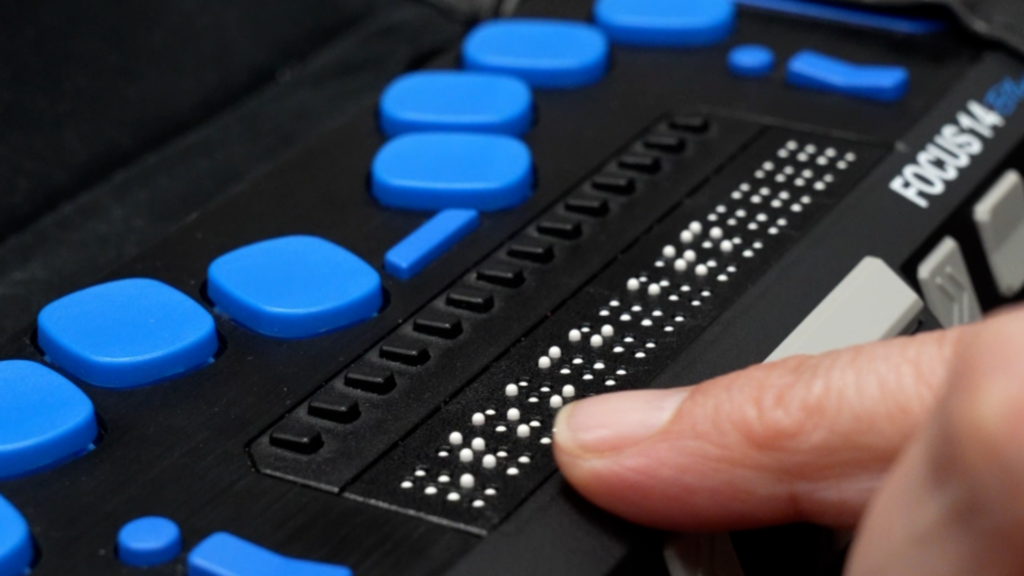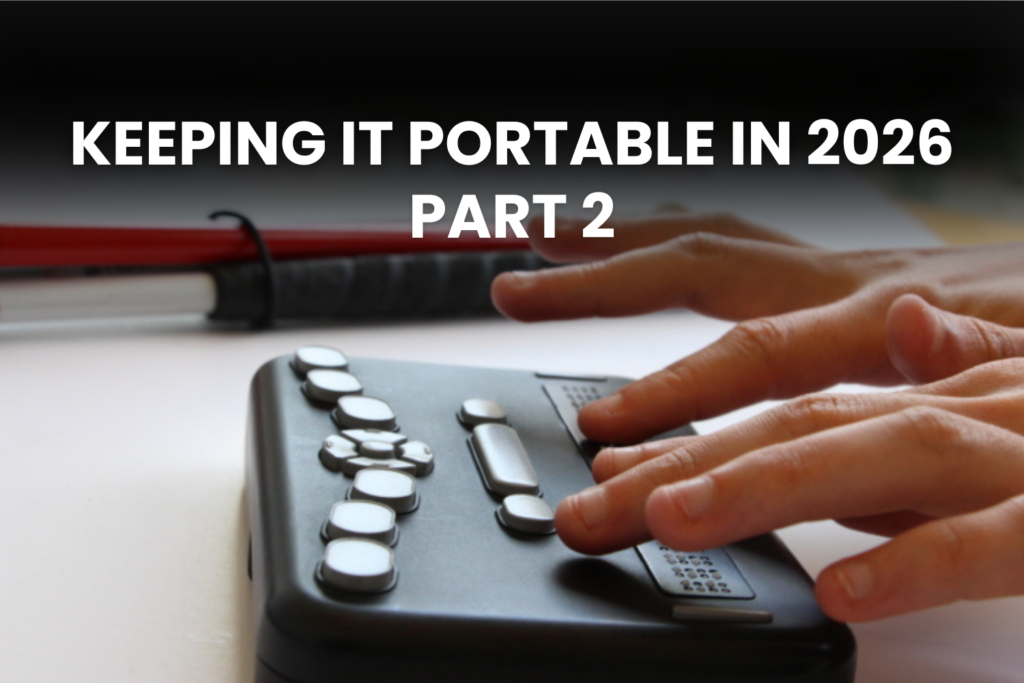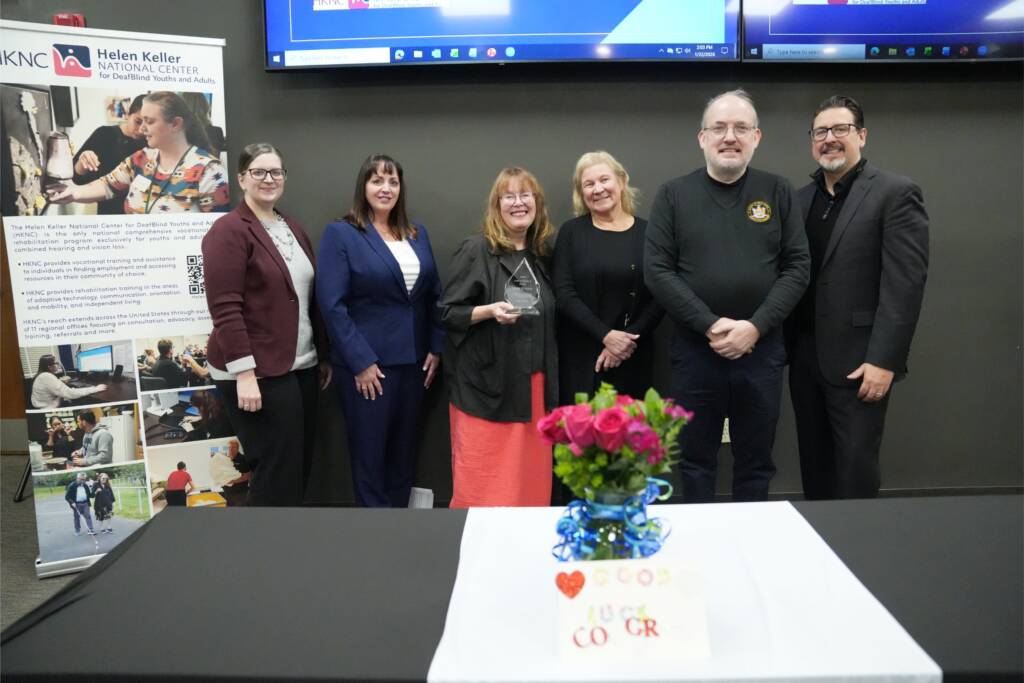Fall 2020
HKNC Connect: Vol. 11 No.
HKNC Connect: Vol. 11 No. 2 Fall 2020
A Publication of the Helen Keller National Center for DeafBlind Youths and Adults
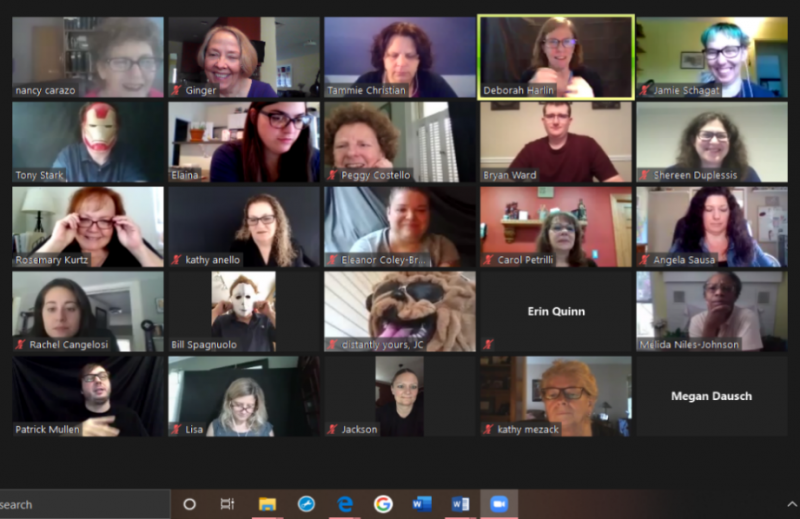
Welcome to HKNC’s newsletter – CONNECT! We’ll not only be keeping you “connected” to what’s happening at the Center, but we’ll also be telling you about things that are happening of interest to people who are DeafBlind.
A SPECIAL ANNOUNCEMENT

SUE RUZENSKI, has been appointed acting chief executive officer of Helen Keller Services (HKS) effective October 1, 2020. Larry Kinitsky, chairman of the HKS Board of Trustees made the announcement on behalf of the Board: “Sue’s responsibilities will include the development of a strategic plan to increase operational effectiveness of the HKS organization which includes Helen Keller National Center for DeafBlind Youths and Adults (HKNC) and Helen Keller Services for the Blind (HKSB). Sue will be working on setting goals and objectives for the future of the organization while also providing the administrative guidance the agency needs until the HKS Board of Trustees completes their national search for a permanent president and CEO. As Sue transitions to her new role, she will work on developing a new organizational structure to ensure HKNC and HKSB have the appropriate oversight and leadership as needed. The HKS Board of Trustees is pleased that she has agreed to serve in this capacity.”
Sue has served in many different positions during her 41 years at HKNC. She began her career at the Center as the residence supervisor in 1979 and soon moved on to the Daily Living Skills Department where she assumed responsibility as supervisor until 1987 when she became the supervisor of the Communications Learning Center. After 3 years she became director of Direct Services where she served for 23 years. She then assumed the acting executive director position for one year in June of 2013, and was appointed to executive director of HKNC in October of 2014, a position she has held to present. In 2019, Sue received her Doctor of Education degree from Columbia University, Teacher’s College, New York, in Adult Learning and Leadership. She has been committed to leading HKNC towards strategically achieving its mission and maximizing its impact as the premiere national resource, service provider and systems change organization working in partnership with individuals who are DeafBlind, their families, professionals and stakeholders throughout the country.
“I am thrilled to commit to this moment as Acting CEO of HKS to foster new opportunities of growth and synergy within the organization and among community partners.”

DEBORAH HARLIN has been appointed HKNC’s acting executive director while HKS conducts a national search for a permanent president and CEO. She will work closely with Sue Ruzenski during this transition to ensure HKNC continues on its current trajectory with the strategic initiatives of Direct Services, Field Services and Information, Research and Professional Development. Deb is very excited to take on this role of acting executive director at this time when HKNC is seeing such innovative training options available to consumers along with the large expansion of the field services team.
Deb began her career at HKNC in October 1985, as an instructor in the Communications Learning Center and moved on to a variety of different positions at HKNC, including Supervisor of the Person-Centered Approach Through Habilitation Program and the Communications Learning Center. After a 6-year hiatus, Deb came back as supervisor of the Adaptive Technology Center. Her most recent position was director of the Information, Research and Professional Development Department. Deb received her Masters of Special Education from Long Island University CW Post and her New York State Teacher of the Visually Impaired certification from Hunter College.
FROM THE ACTING EXECUTIVE DIRECTOR’S DESK
For many people, attending the Helen Keller National Center in New York is a major life decision. Often it means leaving behind a spouse, children or aging parents who depend on them. It might mean arranging for someone to tend to their apartment/home, take a leave of absence from a job, water houseplants, mow the lawn or care for a pet. It is not an easy decision. Because of the COVID-19 pandemic, HKNC has established a new provision of remote services for people who are DeafBlind not only during the pandemic but also for those who have previously been unable to attend the Center in New York.
Flexibility has always been HKNC’s middle name. Now people who are working can continue to work and take HKNC courses at the same time. If their health condition limits their ability to travel far from their medical providers, they can have classes from home with HKNC instructors. Does your schedule limit you from attending HKNC full-time? No problem. Take classes from HKNC two days a week or only in the mornings. The schedule can be adjusted to fit your needs.
Areas of learning include employment, communications, independent living, mobility, and technology. Support areas include audiology, low vision and mental health services. Select as many or as few as are needed. The instruction format will vary depending on communication needs of the participant and instructor. Some options include Zoom, use of videophone, FaceTime, phone calls, email for homework assignments, etc.
HKNC regional representatives have worked with most of the states to establish contracts with state vocational rehabilitation agencies when needed for these virtual services. Remote instruction has been so successful, it is anticipated that these services will continue for people who request them long after a vaccine has been developed for COVID-19. Obviously, in-person services are preferred but the flexibility and creativity that is occurring with remote instruction is here to stay.
This issue of CONNECT! focuses on the changes in training opportunities that have been implemented since the pandemic began and how they have impacted DeafBlind individuals across the country. We’re still providing services to people who are DeafBlind and proud of it!
For more information, contact your HKNC regional representative to ask questions about what virtual training might look like for you. ~ Deb Harlin
WHILE THE WORLD STOOD STILL
On March 17, 2020, HKNC officially closed its doors for the first time since 1969 when it began providing services to people who are DeafBlind.
In the beginning, it was hard to wrap our heads around the ramifications of the COVID-19 pandemic and how it would affect us and yet, spring, summer and fall arrived on schedule, HKNC’s dedicated staff members quickly transitioned to teaching classes remotely, individual on-line training classes and peer collaborative virtual learning groups started, free on-line classes for professionals were offered and media posts were updated to stay connected with all of our friends across the country.
HKNC continues to be a leader in the field of virtual vocational rehabilitation services for and among individuals who are DeafBlind offering opportunities for assessment and training based on an individual’s interests, schedule and goals. Assessment in the core areas of employment services, adaptive technology, communication, independent living and mobility with the clinical areas of audiology, low vision and mental health counseling are offered remotely. The home and the community are natural training environments where strategies can be practiced. There are many training options available.
It may not be “business as usual” but HKNC continues to provide programs and services to people who are deaf blind in new and innovative ways. We hesitate to use a cliché here – but what the heck, HKNC STRONG!
For more information, please contact your HKNC regional representative, or HKNC Admissions Coordinator, Dora Carney at dcarney@helenkeller.org
WHAT’S NEW AT HKNC – LEARNING REMOTELY IN A PANDEMIC
PEER LEARNING GROUPS CURRENTLY IN SESSION
A series of 4 – 8 weeks peer collaborative virtual learning groups are offered free of charge for anyone age 18 or older with both vision and hearing loss. These support groups are being conducted using Zoom videoconferencing, phone or video. Take a look at the diverse and exciting topics below.
• Usher Syndrome I and II Support Groups. Participants lead the discussion on the impact Usher has had on them and help to identify coping strategies.
• Banking and Budgeting. Tips and strategies for practical methods of opening bank accounts, communicating with tellers, making payments, staying safe at the ATM and information on debit and credit cards.
• Advocacy in the DeafBlind World. This class is facilitated by DeafBlind instructors. Participants learn about the laws that protect them and how to develop and enhance their ability and confidence to self-advocate for their rights to equal access to communication, transportation, print/media and technology and the steps to take if these rights are being violated.
• Virtual Cooking teaches tips and strategies for safe cooking and food preparation using adaptive and tactual techniques for food preparation tasks.
• Support Group for People who are Hard-of-Hearing. Participants lead the discussions based on their experiences of living in a “hearing world” and effective strategies being used by their peers.
OTHER PEER LEARNING GROUPS OFFERED DEPENDENT ON REGISTRATION
• Braille Buddies Participants share how they use creative ways to develop their braille skills and learn about about braille resources and how to access them.
• Taste of Tech reviews common available technology such as braille displays, screen readers, Sprint IP Relay, etc. and where to find tech resources.
• Understanding Nutrition is a great opportunity for participants to learn how to boost their immune system to fight disease and learn about healthy habits.
• Emergency and Disaster Planning Participants learn how to set up an emergency bag and prepare for communication and navigation in emergency situations.
• Internet Safety Tips and resources are offered to utilize the internet safely including social media privacy settings, secure online shopping and banking, strong passwords, credential search engines, job searches and more.
• College Success. This group is for current college participants as well as those planning to attend in the future. The focus is on accessing services, classroom learning accommodations, campus life, on-campus safety and housing.
• Mobility Support Group is a holistic group that discusses travel challenges during the COVID-19 pandemic and explores solutions from peers.
• Living on Your Own. Tips and strategies are shared and discussed about practical methods for housekeeping, labelling and organization, food storage, alerting systems, living arrangements, and accessing one’s community
• “Appy Hour” is an opportunity to learn about apps that can help daily life by identifying food, who is in the room, keeping up to date with the latest apps and more
To register for a group, email HKNC Admissions Coordinator, Dora Carney at DCarney@helenkeller.org with the subject line “PLG Registration”
NEW FOR COLLEGE-BOUND PARTICIPANTS
A 10-week DeafBlind College Prep Program is now being offered to DeafBlind high school graduates who are planning to attend college. The program is designed for those who would like some additional preparation addressing their individualized needs and the more general challenges a Deaflind participants might face in their post-secondary educational journey. The participants have an opportunity to participate in a simulated college seminar course, Advocacy in the DeafBlind World, while simultaneously receiving academic instruction in small groups and one-on-one. Additionally, participate will be able to engage in the Success at College peer learning group which covers other non-academic college readiness topics such as navigating campus life and managing social media.
For more information, contact your regional representative or Debbie Fiderer at DFiderer@helenkeller.org
TWO NEW GRANTS
*The Consumer Technology Association Foundation awarded HKNC a grant to provide the following:
• To create an online course focused on the technology training needs of senior adults who are DeafBlind. It will be targeted to the professionals who work directly with these constituents and will provide information and instruction on adaptive technologies that can enhance the independence of senior adults with combined vision and hearing loss, and
• To conduct outreach to senior adults who are DeafBlind and the service providers who work with them to ensure access to training and resources.
The Information Research and Professional Development Department and HKNC Senior Adult Services coordinator will work together to create these trainings and resources for seniors 55 and better with combined hearing and vision loss.
*The Illinois Department of Human Services – Division of Vocational Rehabilitation has approved a grant that will fund an advisory board of six DeafBlind individuals and HKNC staff to study ways that a Support Service Provider (SSP) Program can be established in Illinois with the long-term goal of instituting a statewide SSP Program. Sue Ruzenski stated, “We look forward to working with the community to create a model that can be used to later establish a statewide SSP program and are grateful to the Illinois Department of Human Services and Division of Vocational Rehabilitation for granting us this opportunity!” For more information, contact Ryan Odland at Rodland@helenkeller.org
To learn more about SSPs go to this web page.
. . AND HERE IS AN UPDATE ON HKNC’S NEW WAY OF CONTINUING TO PROVIDE SERVICES
CONNECTING REMOTELY THE FIELD SERVICES WAY
HKNC’s Field services currently includes 10 regional representatives and 1 associate regional representative, 8 DeafBlind specialists and 4 staff in the California Community Services Program. There are job opportunities in all three areas. If you are interested in working at HKNC, check out our job listings on our website!
Stories from the field: How HKNC field staff are assisting people who are DeafBlind with communication and training during the pandemic
• HKNC’S northwest regional representative, Marlene Swarts. has been working with a consumer providing independent living services through FaceTime. The consumer’s aunt is copy signing Marlene’s signs to her.

• Corrine Miller., HKNC’s DeafBlind specialist in Kentucky, made the news for her innovative way to teach one of her participants about Pre-Employment Transition Services. While maintaining proper social distancing, Corrine held a class with a participant through a glass door! In a recent session, Channel 3 WAVE NEWS in Louisville came and interviewed Corrine and the participant’s family. Check out the article!
• Beth Jordan., Region 7 representative, recently received the following letter in connection with the Iowa iCanConnect program run by HKNC: “My name is AG and my Mom, A, was given an iPad through your agency to use to be able to connect with family and friends! She is 93 and struggles to see so has a very hard time staying connected! During this difficult quarantine time she has been able to stay connected with her entire family, near and far through the iPad!” AG thanked HKNC and said, “Without you…we would not be able to see how well she is handling the pandemic.”
• HKNC’s California Community Services Program (CSP) never missed a beat. Wendy Chouinard, placement specialist, adapted to the COVID-19 impact by using a videophone to conduct a remote learning sessions with one of her consumers who is a participant in the Empowerment in the Workplace program. The consumer is learning how and when to request accommodations for himself in the workplace.

• Wendy also reports that three participants attended classes Monday – Thursday in the virtual Summer Youth Program. During a module on Deaf-Blind Adults Careers and Advocacy, a guest speaker, Mia from Vancouver, Canada, joined the group along with her guide dog, Oakley. Mia is a “YouTuber” which is the goal of one of the participants. The other two hope to eventually get a guide dog. Mia spent the class explaining her experiences as a “YouTuber” and discussed the benefits of having a guide dog and the process she went through to get one.
• As a result of the Peer Learning Group’s course in Emergency and Disaster Planning, one participant from Iowa told his regional rep and VR counselor that, after he learned that the emergency bag should include a flashlight and a whistle, he purchased and mailed those two items to a number of his friends to create their own emergency bags

• Kayla Coburn, CSP rehab teacher, worked virtually with a former participant Michael using videophone to make sushi. Kayla said: “We worked together on cooking independently in a new kitchen setting practicing safety techniques with knife placement, clean-up of raw foods, and handling raw foods safely. After he made the sushi rolls, Michael put on a blindfold for clean-up duties. Afterwards, we discussed which techniques worked best and how to clean safely without vision.” As a result of his training and the support from HKNC’s California Community Services Program, this participant is now employed at the Cheesecake Factory in Thousand Oaks, California, as a full-time prep cook!
• In another of Kayla’s classes conducted via videophone, participant Jenelle, made a BBQ chicken salad in their virtual independent living session with Kayla’s guidance. She said, “Jenelle is new to CSP’s services and loves to cook! Corn is her favorite food, so any meal with corn as an ingredient becomes an instant favorite.”
HOW HKNC TEACHES REMOTELY
The HKNC instructors are continuing to work with a variety of participants with varying degrees of being DeafBlind. Here are some of their techniques:
• For participants who are hard-of-hearing and blind/low vision, the instructors can call them on the phone and provide verbal instruction as they learn Voiceover commands on their iPhone via a Bluetooth Qwerty keyboard or via a braille display.
• Participants who use the screen-reading software JAWS – using JAWS tandem feature to remote into the participant’s computer to either view their screen while providing instruction or be able to access the participant’s screen via a braille display.
• Zoom or Sorenson Videophone with captioning can be used to communicate with our participants who are deaf and have vision loss. They are instructed how to configure their computers using their iPhone to take a picture of the monitor and send it to their instructor as a text message with the picture. The instructor then opens the text with the picture, takes a screenshot and circles what needs to be selected and then sends the picture back to them. We have success with setting up Zoom this way on a computer, installing e-mail into the Mail application on an iMac and supporting a participant with configuring accessibility features on his or her iPhone.
• Some participants who are deaf and do not have enough usable vision to access Zoom or VP requested the assistance of the natural supports in his or her home such as a roommate or family member. These natural supports have made it possible for the participant to join individual classes as well as group classes. Be sure to check out the resource on accessible Zoom Conferencing on our HKNC website!
Technology Remotely

The instructors have had wonderful support from the HKNC interpreters who go above and beyond to accommodate the specific communication needs of the participants. They are also appreciative of the friends and family members who live with a participant as they provide access via tactile ASL and copy sign what is being interpreted by our interpreters.
One participant is working on using the iPhone with Seeing AI and the mail app. Two instructors follow along – one on his braille display and the other on the iPhone.
With many of the participants the instructors have been using JAWS Tandem to log in to their computers and following along on the instructor’s braille display and JAWS. Through this method, we have worked on many different activities such as using Microsoft Word, web-browsing, trouble-shooting, setting up email accounts, exploring new programs and screen-readers—just as they would do in an in-person training.
A participant uses his new laptop with ZoomText Fusion and a Focus 40 braille display to read his homework from his communications class with his instructor. Another participant learned how to use Sprint IP Relay and downloaded applications that she will be using to learn braille in her communications classes. She is also learning how to take a screenshot with her MacBook.
Mobility Remotely
Never say never!! Here’s how JC Barrios, a senior mobility instructor, held a virtual class with an HKNC participant: “We had a mobility lesson, which included route planning through interaction with the public. This meant I played the role of a very impatient yet kind store owner whom she called to ask to inquire about the route. When investigating the possible destinations, I had to make sure to pick one that wasn’t appealing to a young lady. So no ice cream parlor and no corner pizza shop, as she would be very familiar with these destinations. So I chose Pike Buick GMC! The participant’s main concern was whether there were landmarks or clues near the mid-block destination that would assist her in finding the store. After one hypothetical trial run the participant was ready to take the bull by the horns and made it safe and sound!”
When hurricane Isaias hit New York, thousands of customers lost electricity, cable, and internet access across Long Island. Monica Godfrey, O & M supervisor, had four presentations the day after the storm to participants in two of the youth summer classes but she had no internet. Hmmm. What to do? Well, when she went to get her morning coffee at Starbucks, she realized they had internet service so she parked her car in their parking lot and conducted her presentations there. Participants attending the class came from across the country including Hawaii. The interpreter for the class was from Connecticut which was under a tornado warning!
Braille Remotely

• Rosemary also works on remote braille instruction with another participant who is fully DeafBlind. Rosemary emails him sentences to braille and the participant brailles them on his Perkins brailler. His roommate, who acts as his communication facilitator, photographs the brailled pages and emails them to Rosemary for correction before the next class. That way Rosemary has a visual copy and her participant has his tactile copy for them both to work from.
Advocacy Remotely
The summer Advocacy in the Deaf-Blind World (ADBW) virtual classes had 18 participants learning advocacy strategies from each other guided by DeafBlind mentors. “I found the experience of seeing and discussing matters with others who share deaf-blindness priceless and confirming,” explains one participant. The ADBW curriculum was designed by DeafBlind staff at HKNC to provide other DeafBlind people with the information and tools that they need to advocate for themselves across many aspects of their lives from securing qualified interpreters to accessing transportation and SSP services. “I look forward to share what I learned with fellow members of my Duel Sensory Impairment Chapter of the NFB. Doing so will give us all a much better understanding of our rights and ways to advocate for ourselves” says one participant.
HKNC SUMMER YOUTH PROGRAMS
The eight-week SUMMER ASSESSMENT PROGRAM went virtual in June, July and August. The program offered a comprehensive assessment to help individuals understand their current knowledge/skills and then match them with their interests to develop future goals. The assessment areas included job exploration, technology, self-advocacy, communication, orientation and mobility, low vision, audiology and more. The participants also got to join the Peer Learning Groups of their choice.

Two six-week SUMMER YOUTH VOCATIONAL PROGRAMS (SYVP) were held to prepare 11 transition-age youth for competitive and integrated employment. Participants in each program took part in daily virtual classes which concentrated on their areas of interest. They learned about all aspects of employment from writing resumes, work readiness, employer expectations and filling out a job application. They learned work related vocabulary, self-advocacy, goal setting, identifying personal strengths and soft skills such as social skills, respectfulness, personal behavior and more. Many took part in informational interviews including one participant who was able to interview a children’s book author/illustrator. The participant is in college taking courses in fine arts, illustration and graphic design hoping to get into the field of children’s books.
Information was shared on how to prepare for a job interview such as appropriate vocabulary and employer expectations. Before the end of the session, each participant had a mock interview. They were expected to have their resumes completed and had to present themselves professionally and answer typical interview questions to the best of their ability.
In addition to the vocational aspect of the SYVP, the participants learned about the Americans with Disabilities Act and worked with staff from HKNC’s Communications Learning Center on personal finances, banking and budgeting. They also had sessions with the Mobility Department and the Independent Living Department to help them acquire independent living skills.
This summer’s two-week M-POWER program (My Pursuit of Work, Empowerment and Resources) was offered to the traditional high school age participants. However a “new” M-POWER virtual program was also offered to a group of 14–15-year-old youths. The curriculum, adapted for this younger age group, followed the same outcome/skill areas as the regular M-POWER program. It included major areas of Pre-Employment Transition Services including job exploration, counseling, work-based learning experiences, counseling on post-secondary educational opportunities, workplace readiness training and self-advocacy. Participants also learned skills in the core areas of orientation and mobility, communication, independent living and adaptive technology. M-POWER also includes peer mentoring opportunities, job shadowing and learning and sharpening readiness skills that lead to employment.
For more information go to our Youth Programs webpage or contact your regional representative.
AN EXCITING NEW APP UNVEILED
Our good friends at Hapti-Co in Norway have released an app called Haptics: Pocket Edition. Haptics is a standardized system of providing visual and environmental information as well as social feedback to individuals with both a vision loss or a combined hearing and vision loss via touch signals on the body. This app organizes and presents a standardized methodology with accessibility features for people with vision and hearing loss. The app is FREE! Check it out here:
UPDATE ON DESTINY HOME DURING TIMES OF COVID-19
Just like the rest of the world, the five residents at HKNC’s Destiny Home, have had to adjust to the restrictions such as wearing masks brought on by the onset of the pandemic. Destiny Home is the first community residence in New York State for individuals who have combined vision and hearing loss as well as intellectual disabilities. Thanks to the invaluable support of staff, nurse and managers, Destiny has continued to operate and the residents, with the help of their job coaches, are getting back to a new way of working. One resident now teaches her sign language classes through Zoom and the management of a snack machine business has resumed following NY state guidelines. The residents have adjusted to this new life style but are very eager for things to get back to normal.
JUNE WAS BUSTING OUT ALL OVER
June is the month that we eagerly await the celebration of DEAFBLIND AWARENESS WEEK which always occurs the last full week of the month and encompasses Helen Keller’s Birthday on June 27th. In spite of the COVID-19 outbreak, many events took place across the country – although all slightly different.

DEAFBLIND AWARENESS ACTIVITIES ACROSS THE COUNTRY

• NEW YORK: ** Helen’s Run/Walk/Cycle began the celebration of DeafBlind Awareness in New York. It was held from June 6 – 20 as a virtual event for the first time in its history. The event was a wonderful success with many innovative ways people found to participate safely at home including riding an exercise bike, walking on a treadmill, running in a quiet neighborhood, etc.
**Michael DelGuidice, musician, multi-instrumentalist, singer, and songwriter, best known as a cover band for Billy Joel, was featured in virtual LIVE benefit concert on June 18th playing some of his original songs as well as those of Billy Joel and Elton John.
** A special DeafBlind Awareness t-shirt was designed by HKNC staffer, JC Barrios, and sales were excellent!!
** On June 25th, a livestream presentation of THE FEELING THROUGH EXPERIENCE was held. It included the “Feeling Through” film, a documentary and a panel discussion with Doug Roland, writer/director; Robert Tarango, the first DeafBlind person to appear in a feature film; Chris Woodfill, associate director of HKNC and Stephen Prescod, the co-star in “Feeling Through.” Doug reports that viewers from all across the world watched this event.

• NEBRASKA: Kim Davis, who is with the Nebraska Commission for the Deaf and Hard of Hearing, shared her “Tidbits” in a short video in celebration of DeafBlind Awareness Week. Beth J. writes: “Kim has always been a friend/SSP in the DeafBlind community whether it was during her years in Missouri or Nebraska. I sent out the info about DBAW from HKNC and she re-shared several of those resources including Feeling Through in her message.” Check out the video!
• NEW JERSEY: ** A proclamation declaring the last week in June as Helen Keller DeafBlind Awareness week was signed by Governor Phil Murphy and Lieutenant Governor Sheila Oliver.
**The DB CAN NJ board hosted a Virtual Happy Hour on June 26, to celebrate Helen Keller DeafBlind Awareness Week along with Eyes Like Mine Inc. who co-sponsored the event.
**Another New Jersey event was DEAFBLIND MAN CRUSH MONDAY and DEAFBLIND WOMAN CRUSH WEDNESDAY highlighting several familiar faces on Facebook. This innovative way of celebrating DBAW was the brainchild of Eyes Like Mine Inc. in partnership with DB CAN NJ. To read their posts on Facebook, go to the following links:
L-R below: Scott Davert; Jon Gabry and Chris Woodfill
Learn about Scott here!
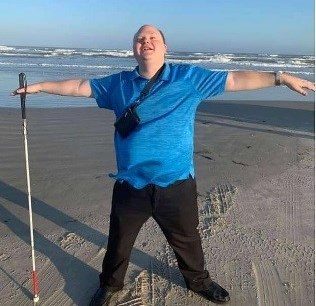
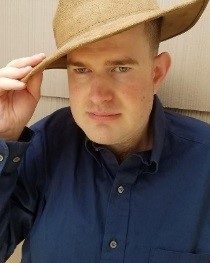
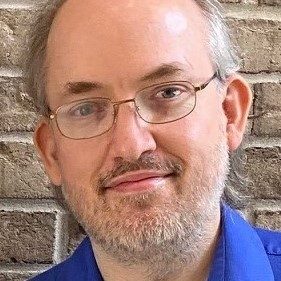
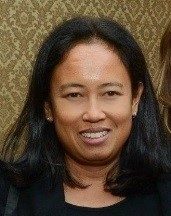
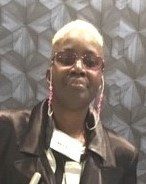
Left above: Maricar Marquez
Learn about Maricar here!
Right above: Alice Eaddy
Learn about Alice here!
NEW ON HKNC’S WEBSITE
“Zoom Video-Conferencing: Accessibility Practices for People who are Deaf-Blind” provides facilitators and participants with information on making video conferencing accessible for people who are DeafBlind.” View our publications here!
HKNC’s website now has fully accessible videos summarizing each of the Titles of the Americans With Disabilities Act. Learn more about the specifics of the ADA.
The Professional Learning Department offers a variety of multi-media classes for professionals working with DeafBlind individuals. Eight of these modules are now available in Spanish.
The latest course to be added, “Audiological Considerations for Those with Dual Sensory Loss,” is geared towards professionals who support and work with individuals who have a combined hearing and vision loss. The content can also be beneficial for DeafBlind consumers as well as their family and friends.
To lean more, check and out our courses and contact your HKNC regional representative with any questions you may have!
If you would like to reprint any articles from CONNECT!, please send an email to info@helenkeller.org for permission and crediting information HKNC’s mission is to enable each person who is DeafBlind to live, work and thrive in the community of his or her choice.
Please contact our headquarters for more information
141 Middle Neck Road, Sands Point, NY 11050
Phone: 516-944-8900 TTY: 516-944-8637 Videophone: 516-570-3626
Email: info@helenkeller.org Website: www.helenkeller.org
Deb Harlin, Acting Executive Director
NEWSLETTER COMMITTEE
Editors: Allison Burrows & Beth Jordan
Photo Credits: Allison Burrows, DB CAN NJ, Jon Gabry, Ginger Lowe, Bill Spagnuolo, Rosemary Kurtz, Kayla Coburn and Wendy Chouinard
